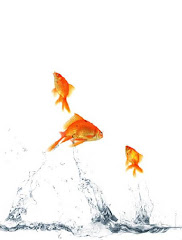I've recently come across an odd banana-yellow book shouting a single word title from the bookstore shelf. The link is here. It's called Curious?
Aren't you?
I love the bold black font of the title, love the Curious-George feel of the dust jacket.
I'll admit that I haven't yet read the book and this is by no means a review or endorsement, but I'm going to write about it anyway. There's something about the idea that resonates.

Todd Kashdan of the really-long-and-rather-ambiguously-named, Laboratory for the Study of Social Anxiety, Character Strengths, and Related Phenomena, says that the missing ingredient to living a more fulfilling life is to become more curious. And then cultivate it.
Because this sounds like such an awfully simple and zen sort of premise, and because I'm already convinced that fulfillment happens to come in two convenient forms- hatching of new thought and nurturing of new ideas- it appeals.
The Curious book is next on my reading list but meanwhile, it's the bold-font title that's prompted some thinking about the role curiosity plays in snowballing Big Ideas.
Along with apophenia, one of the quirkier and sometimes even annoying traits I'd claim is a basic curiosity which causes me to ask people a lot of questions. The two traits tag team, because to make the connections that form those Big Ideas I'm always talking about, you've got to ask a lot of questions. Every new venture or adventure I've begun has come from a single query.
What if I started a blog on cultivating all those Big Ideas my friends always seem to cook up?
The energy and impetus to continue moving forward remains as long as I engage by asking more questions:
Where do those Big Ideas come from?
What are the essential qualities of a person who continually comes up with new (ad)ventures?
How can I encourage myself and others through the "idea incubation" stage?
How do we find the energy to work through stalls and setbacks ?
I've found that as the curiosity fades, the Idea begins to die. But what kills it? According to Kashdan's book, it's when the benefits of being curious no longer outweigh the risks of pursuing an unknown path.
Kashdan talks about developing the kind of person he calls "a curious explorer",and since he's volunteering to help me out, I'm up for some personal development. His promised methods sound just right for conjuring success from the genesis of a single question.
Over the next couple of weeks while on vacation, I'll be reading and taking notes. If his promised "exercises to show you how to become what he calls a curious explorer" deliver, this will become a testing ground for developing what he hopes is a "person who's comfortable with risk and challenge", and this blog will become a place where I'll examine functioning optimally in this, our "unstable, unpredictable world".
Going in, I've got a lot of questions for Kashdan. But for you, here's one: Do you know that Curious George was not a monkey?!


